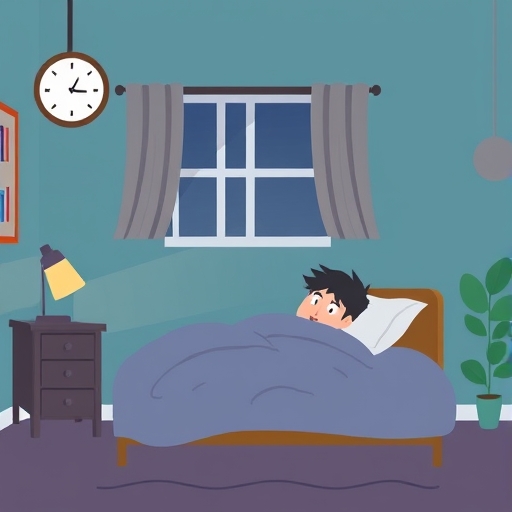What Time Do College Students Go to Bed?
College life is often characterized by late-night study sessions, social gatherings, and a general shift in lifestyle compared to high school. One of the most interesting aspects of this new lifestyle is the sleep patterns of college students. This article dives into the various factors that influence what time college students go to bed, examines their sleep habits, and offers insights into how these habits can affect their academic performance and well-being.
Understanding College Sleep Patterns
The Average Bedtime
Research suggests that the average bedtime for college students ranges between 11 PM and 1 AM. However, this can vary significantly based on several factors, including:
- Academic workload
- Social activities
- Personal habits
- Cultural factors
- Many college students find themselves staying up late to complete assignments or study for exams. This often leads to irregular sleep patterns.
- College is a time for socializing, and many students engage in late-night outings or gatherings with friends, which can push their bedtimes later.
- Some students may choose to prioritize entertainment, such as binge-watching shows or gaming, over sleep.
- The prevalence of smartphones and laptops means that many students are exposed to screens right before bedtime, which can impact their ability to fall asleep.
- Sleep patterns can also vary by culture. For example, students from cultures that prioritize socializing may stay up later than those from more individualistic cultures.
- Decreased cognitive function
- Poor academic performance
- Increased stress and anxiety
- Higher risk of mental health issues
- Physical health problems
- Only 11% of college students report getting enough sleep on a regular basis.
- The average sleep duration for college students is about 6.5 hours per night.
- Engineering Students: Often sleep around 5.5 to 6 hours due to heavy coursework.
- Humanities Students: Tend to have slightly more regular sleep schedules, averaging around 6.5 to 7 hours.
- Go to bed and wake up at the same time every day to regulate your body clock.
- Engage in calming activities, such as reading or meditation, before bed.
- Reduce exposure to blue light from devices at least an hour before bedtime.
- Ensure your sleeping area is dark, quiet, and cool for optimal sleep quality.
- Limit caffeine consumption in the afternoon and avoid heavy meals close to bedtime.
- Regular physical activity can help improve sleep quality.
- Counseling services for mental health support
- Workshops on time management and study skills
- Health services that provide information on sleep hygiene
- Improved mood
- Reduced anxiety levels
- Enhanced resilience to stress
- Improved immune function
- Better weight management
- Lower risk of chronic illnesses
Factors Influencing Bedtime
1. Academic Workload
2. Social Activities
3. Lifestyle Choices
4. Technology Use
5. Cultural Differences
The Impact of Sleep on Academic Performance
Sleep Deprivation and Its Consequences
Research indicates that insufficient sleep can have serious consequences for college students, including:
Recommended Sleep Duration
The National Sleep Foundation recommends that young adults (18-25 years) aim for 7 to 9 hours of sleep per night. However, many college students fall short of this recommendation due to various pressures and lifestyle choices.
Sleep Trends Among College Students
Data on Sleep Duration
A survey conducted by the American College Health Association found that:
Comparison Table: Sleep Duration by College Year
| College Year | Average Sleep Duration | Typical Bedtime |
|---|---|---|
| Freshman | 6.8 hours | 12:30 AM |
| Sophomore | 6.5 hours | 12:00 AM |
| Junior | 6.3 hours | 11:45 PM |
| Senior | 6.0 hours | 11:00 PM |
Sleep Patterns by Major
Certain majors may also influence sleep patterns, with students in demanding fields like engineering and nursing often reporting later bedtimes and shorter sleep durations.
Strategies for Improving Sleep Hygiene
Tips for Better Sleep
1. Establish a Sleep Schedule
2. Create a Relaxing Bedtime Routine
3. Limit Screen Time Before Bed
4. Create a Comfortable Sleep Environment
5. Be Mindful of Caffeine and Food Intake
6. Exercise Regularly
The Role of Campus Resources
Counseling and Health Services
Many colleges offer resources to help students manage stress and improve their sleep. These may include:
Peer Support
Engaging with peers can also help students develop healthier sleep habits. Study groups, roommate agreements, and social activities can encourage students to prioritize their well-being.
The Importance of Sleep for Overall Well-Being
Mental Health Benefits
Adequate sleep plays a crucial role in maintaining mental health. Students who prioritize sleep report:
Physical Health Benefits
Getting enough sleep is also linked to physical health benefits, such as:
Conclusion
Understanding the sleep habits of college students reveals the challenges they face in balancing academic demands, social activities, and health. While the average bedtime may fall between 11 PM and 1 AM, many students struggle to get the recommended hours of sleep. By recognizing the impact of sleep on academic performance and overall well-being, students can take proactive steps to improve their sleep hygiene.
FAQs
Q: What is the average sleep duration for college students?
A: The average sleep duration for college students is about 6.5 hours per night.
Q: How many hours of sleep do college students need?
A: Young adults aged 18-25 should aim for 7 to 9 hours of sleep per night.
Q: What factors influence college students’ bedtimes?
A: Factors include academic workload, social activities, lifestyle choices, technology use, and cultural differences.
Q: How can college students improve their sleep habits?
A: Students can establish a sleep schedule, create a relaxing bedtime routine, limit screen time, and exercise regularly.
Q: Are there resources available for students struggling with sleep issues?
A: Yes, many colleges offer counseling and health services that provide support and information on sleep hygiene.
By being mindful of their sleep habits and leveraging available resources, college students can enhance their academic performance and overall quality of life.





